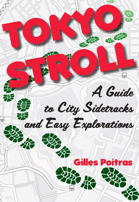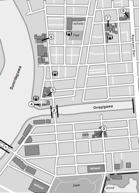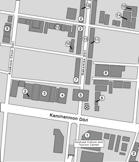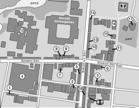











Tokyo Stroll Supplement: Edogawa ku

This page is for locations in the Edogawa ku area of Tokyo. This neighborhood is not part of my book Tokyo Stroll.
For information on Tokyo Stroll and this web supplement see Tokyo Stroll Supplement home page
For users of the Organic Maps, Maps.Me and Google Maps apps the items below have bookmarks you can import into those apps to make navigation easier.
Instructions and links are on the Viewing Locations in Organic Maps, Maps.Me, Google Maps, or Google Earth page.
Some entries on this page may include a note that says "Description to be added soon ." These entries are for items I felt should be listed even if the description is not ready to assist those who wish to plan a trip. When possible I included a link to an official web page, I suggest also doing web searchs for more information.
Edogawa ku (江戸川区)
Edogawa ku was founded in 1937 by merging the Minami-katsushika District towns of Koiwa and Komatsugawa, and the villages of Kasai, Matsue, Mizue, Shinozaki and Shikamoto. Edogawa ku is bordered on the north by Katsushika ku, the west by the Arakawa river, the south by Tokyo Bay, the east by two rivers which separate it from Chiba ken: the Edogawa and the Kyū-Edogawa.
Official pages for each of the ku of Tokyo will have sections of interest to visitors. These will likely be labeled as dealing with culture, tourism, or events.
Edogawa-ku official site: https://www.city.edogawa.tokyo.jp
Edogawa City Nature Zoo / Edogawaku shizen dōbutsuen (江戸川区自然動物園)
A free zoo located in Gyōsen Park with hundreds of animals you won't find large beasts here but what is on display is varied and often cute. There are birds, reptiles, monkeys, and a variety of other mammals. Popular residents include prairie dogs, red panda, a giant anteater, a seal, and penguins. Included is a petting section called the Fureai Corner with rabbits, chickens, ducks, Guinea pigs, goats, and sheep. The selection in the zoo shop has items made specifically for this zoo.
CLOSED: Mondays, if Monday is a holiday the zoo will close on Tuesday, New Year's holidays, December 29 -January 1.
NEAREST TRAIN/SUBWAY STATION: Nishi-Kasai Station (Tokyo Metro Tōzai Line)
WEB: https://www.edogawa-kankyozaidan.jp/zoo/
Former Komatsugawa Lock / Kyū Komatsugawa Kōmon (旧小松川閘門)
Description to be added soon
NEAREST TRAIN/SUBWAY STATION: Higashi-ojima Station (Toei Shinjuku Line)
Gyōsen Park / Gyōsen Kōen (行船公園)
This park is known for cherry blossom viewing, an iris garden, and a Japanese garden.
It also contains ornamental and fishing ponds, a playground, and the Edogawa City Nature Zoo. It is also adjacent to the Ukita Park so you can wander from one to the other and think you are still in the same park when in fact you have left Gyōsen Park.
NEAREST TRAIN/SUBWAY STATION: Nishi-Kasai Station (Tokyo Metro Tōzai Line)
Kasai-Rinkai Park / Kasai Rinkai Kōen (葛西臨海公園)
Description to be added soon
NEAREST TRAIN/SUBWAY STATION: Kasai-Rinkai Park Station (Keiyō Line)
WEB: https://www.tokyo-park.or.jp/park/kasairinkai/
Kiki's Museum of Literature / Mahō no bungakukan (魔法の文学館)
Description to be added soon
NEAREST TRAIN/SUBWAY STATION: Kasai Station (Tokyo Metro Tōzai Line)
WEB: https://kikismuseum.jp
Shinohara Fūrin Honpō (篠原風鈴本舗)
Founded in 1912 in another part of Tokyo, the second head of the business moved it to Edogawa ku in 1964. They produce hundreds of fūrin each day which are shipped to retailers in many parts of Japan. Their fūrin made of blown glass with an image painted on them. They have trademarked the name Edo Fūrin to refer to what is usually referred to simply as glass wind chimes, the only other shop allowed to use the name is Shinohara Maruyoshi Fūrin in Taitō Ku. As the painting is done from the inside it starts with outlines first, then details, followed by background colors. As these are all hand blown each has a slightly different sound, the opening at the bottom is not smooth which adds a certain variety to the sound produced by the fūrin. Workshops are offered on making your own Edo fūrin.. There are two kinds of workshops, one in which you do glassblowing, the other you paint a pre-blown fūrin. One of the employees attended such a workshop as a grade-schooler and eventually ended up working at Shinohara Fūrin.
CLOSED: Sundays, Holidays, New Year's holidays. Irregular openings July through early September. They take lunch breaks from 12:00 to 13:00..
NEAREST TRAIN/SUBWAY STATION: Shinozaki Station (Toei Shinjuku Line) and Mizue Station (Keio Line and Shinjuku Line)
WEB: https://www.edofurin.com/
Shunkaen Bonsai Museum (春花園BONSAI美術館)
Description to be added soon
NEAREST TRAIN/SUBWAY STATION: Shinozaki Station (Toei Shinjuku Line)
WEB: https://kunio-kobayashi.com/en/index.html
Tokyo Metro Museum / Chikatetsu hakubutsuka(地下鉄博物館)
Access to the museum is on the street, you buy a ticket just as you would at a regular subway station, go through the turnstile, and head downstairs to the museum. The history exhibits include Marunouchi Line car 301 and Subway car No. 1001, which is designated as a national important cultural property. A section on construction methods includs a shield machine cutter disc used to bore subway tunnels. There is also a display on the General Command Center and a single track shield tunnel unit to show how strong the reinforced tunnel walls are. A section on passenger service includes information on signage systems. There is also a display on the braking system and the front end of a Ginza Line 01 series train where the operator controls the train, a train driving simulator can also be tried out. Models of what the system looks like underground ad a good visual touch. The museum shop including original goods. The museum is largely barrier-free, there are free stroller rentals, free coin lockers, a nursing room, and a rest area with vending machines for snacks and beverages.CLOSED:
Mondays, open if Monday is a holiday and then closed on Tuesday.
New Year holiday
NEAREST TRAIN/SUBWAY STATION: Kasai Station (Tozai Line)
WEB: https://www.chikahaku.jp/en/
Tokyo Sea Life Park / Kasai rinkaisuizokuen (葛西臨海水族園)
Description to be added soon
NEAREST TRAIN/SUBWAY STATION: Kasai-Rinkai Park Station (Keiyō Line)
WEB: https://www.tokyo-zoo.net/zoo/kasai/
Back to the Tokyo Stroll Supplement home page - Privacy Notice - Back to Gilles' home page
Created March 7, 2024 | Content last updated June 28. 2025